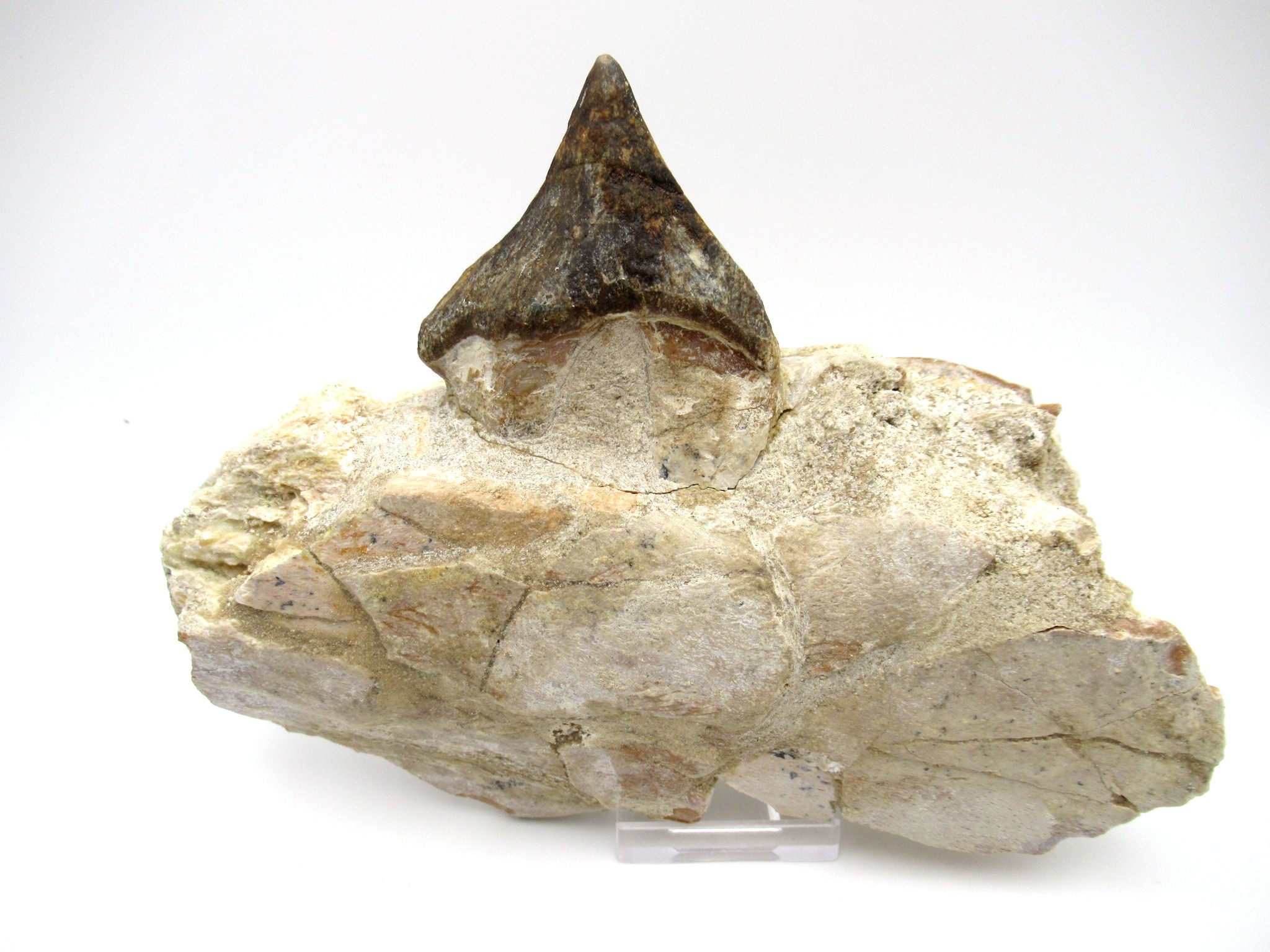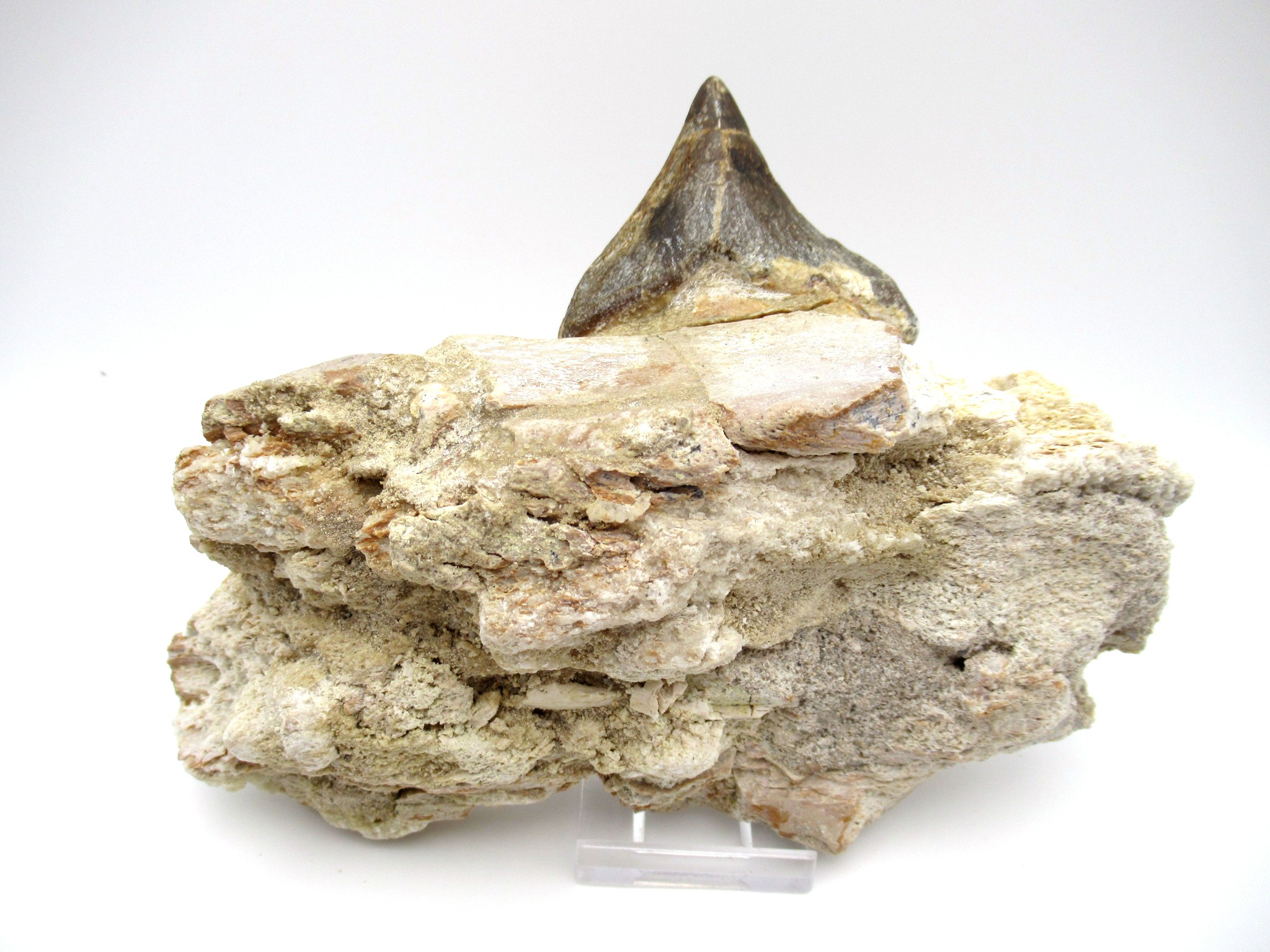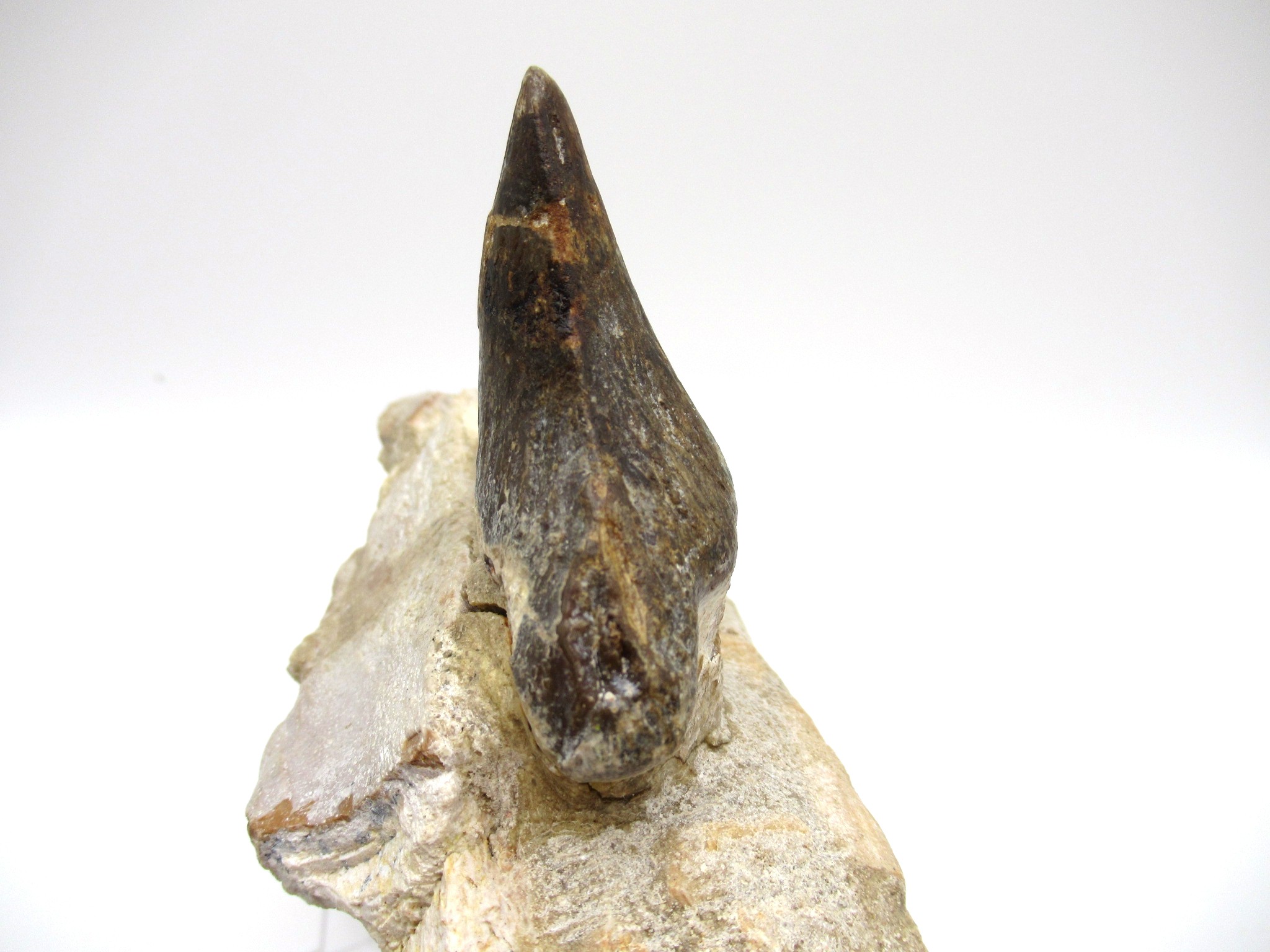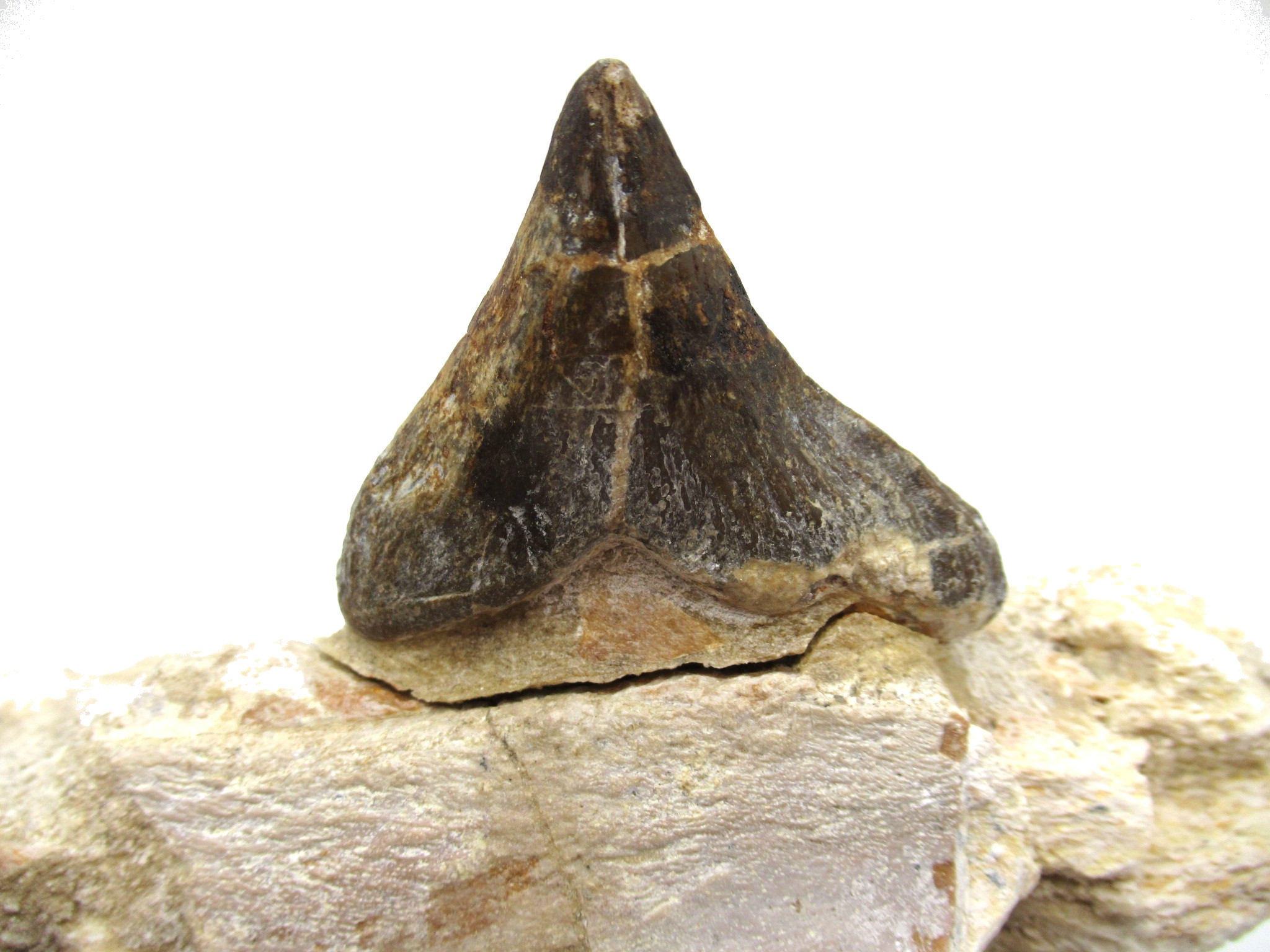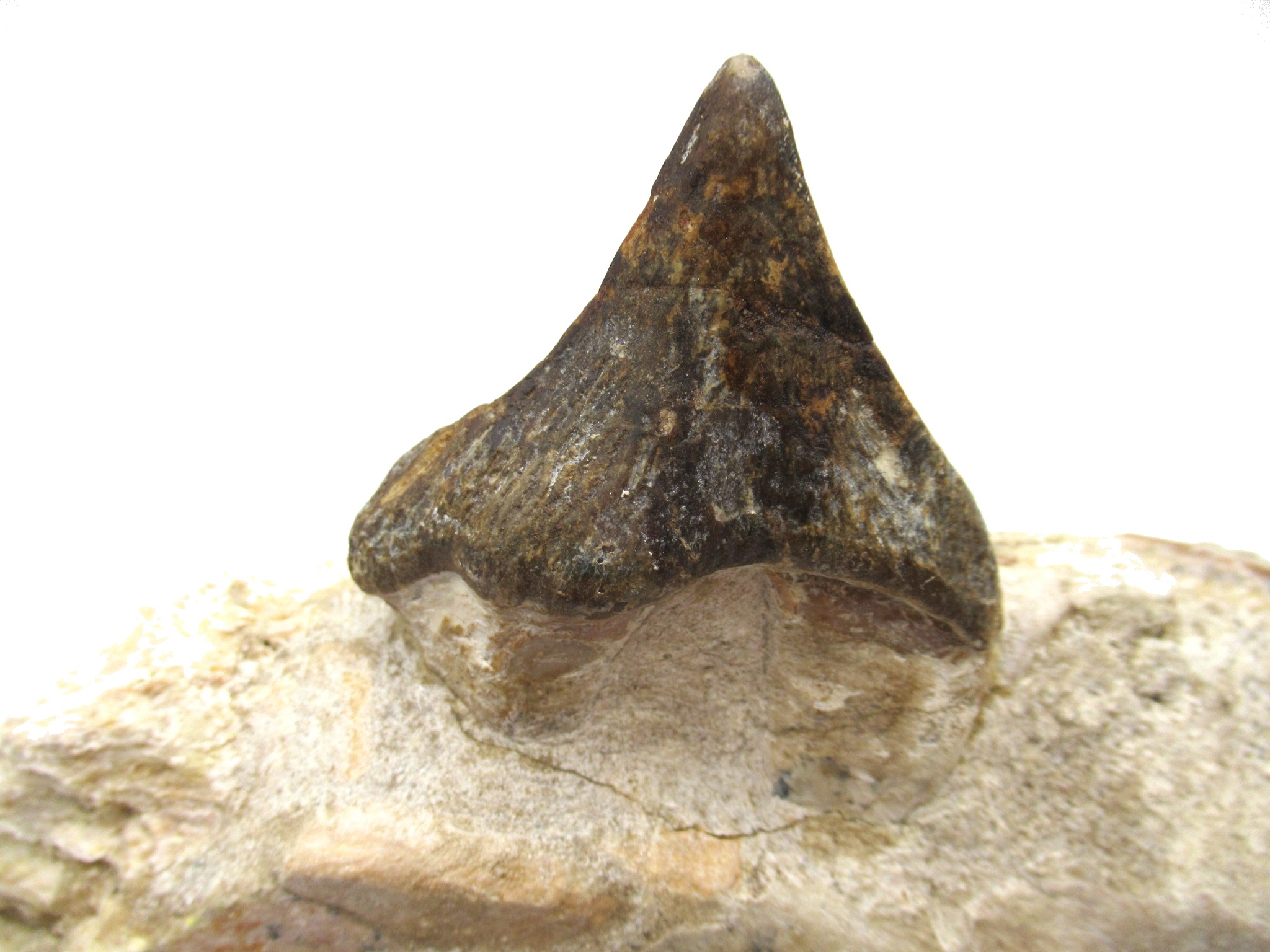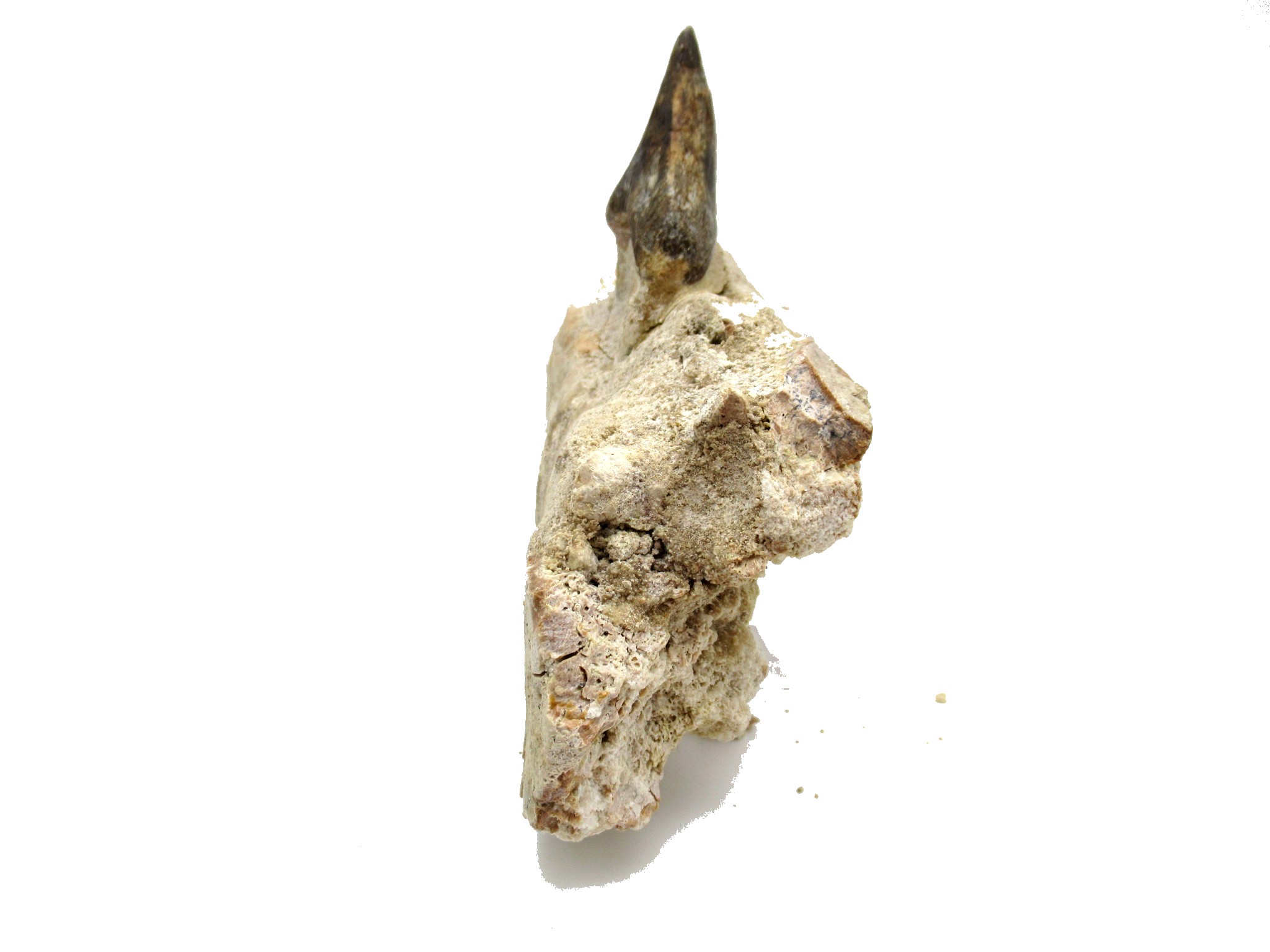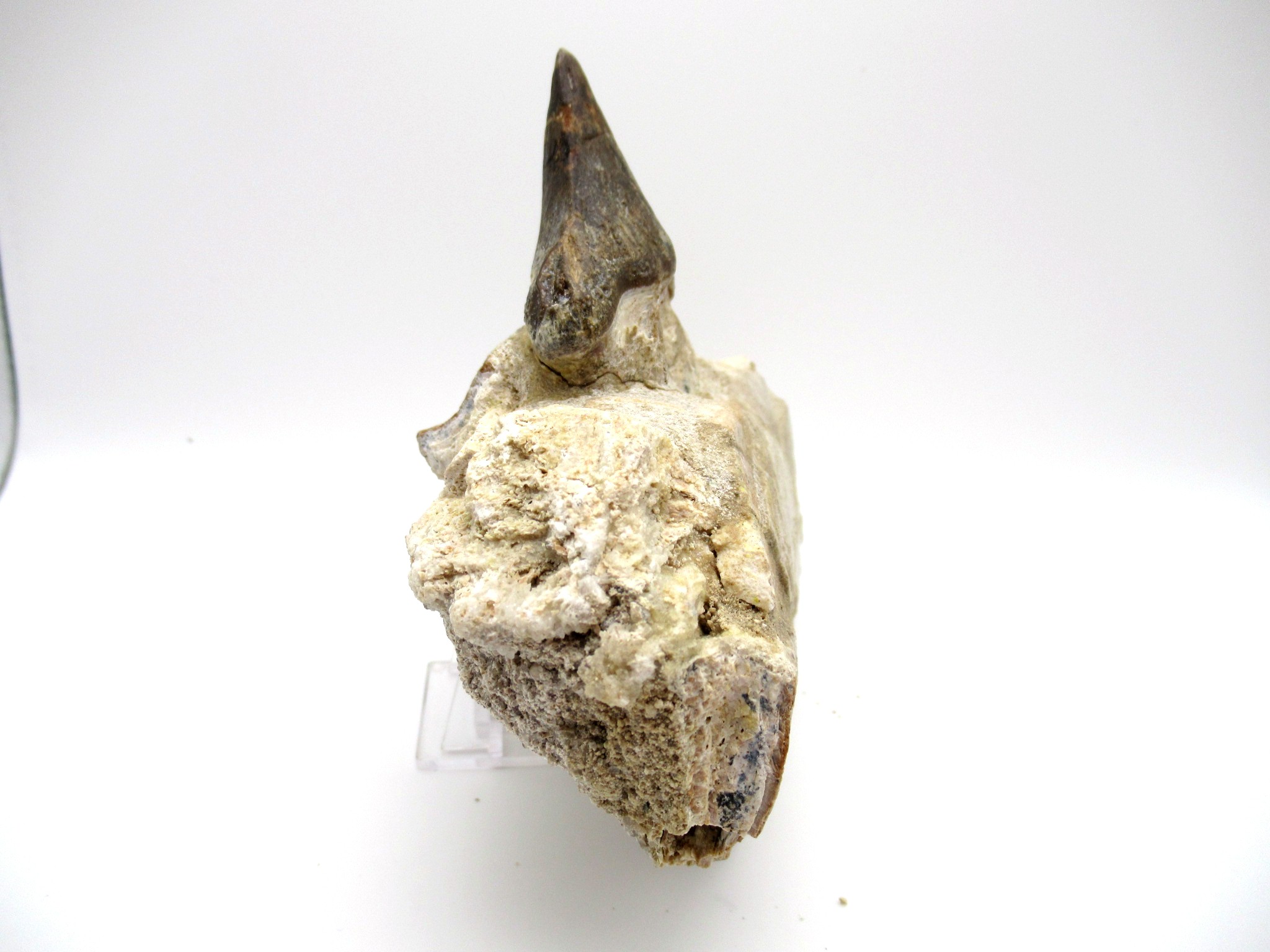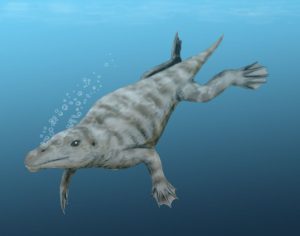Description
- Pappocetus lugardi “Walking Whale” Jaw
- Eocene Age
- Gueran,
- Boujdour Basin
- Morocco, North Africa
- Jaw Measures 6.3″ wide. This is an ULTRA RARE specimen! There are cracks around where the tooth enters the jaw. Appears to have broken off and glued back on without attempts to hid with crack fill. This specimen has great eye appeal in addition to the rarity appeal.
- More Whale Fossils for Sale
Pappocetus is an extinct protocetid cetacean known from the Eocene of Africa. Cetacea is an infraorder of aquatic mammals that includes whales, dolphins, and porpoises. Key characteristics are their fully aquatic lifestyle, streamlined body shape, often large size and exclusively carnivorous diet. They propel themselves through the water with powerful up-and-down movement of their tail which ends in a paddle-like fluke, using their flipper-shaped forelimbs to maneuver.
What is a walking whale? Paleontologists have found fossil evidence of various “walking whales,” semiaquatic whales that show some early stages of the transition from land-dwelling ancestors to today’s familiar fully marine whales.

